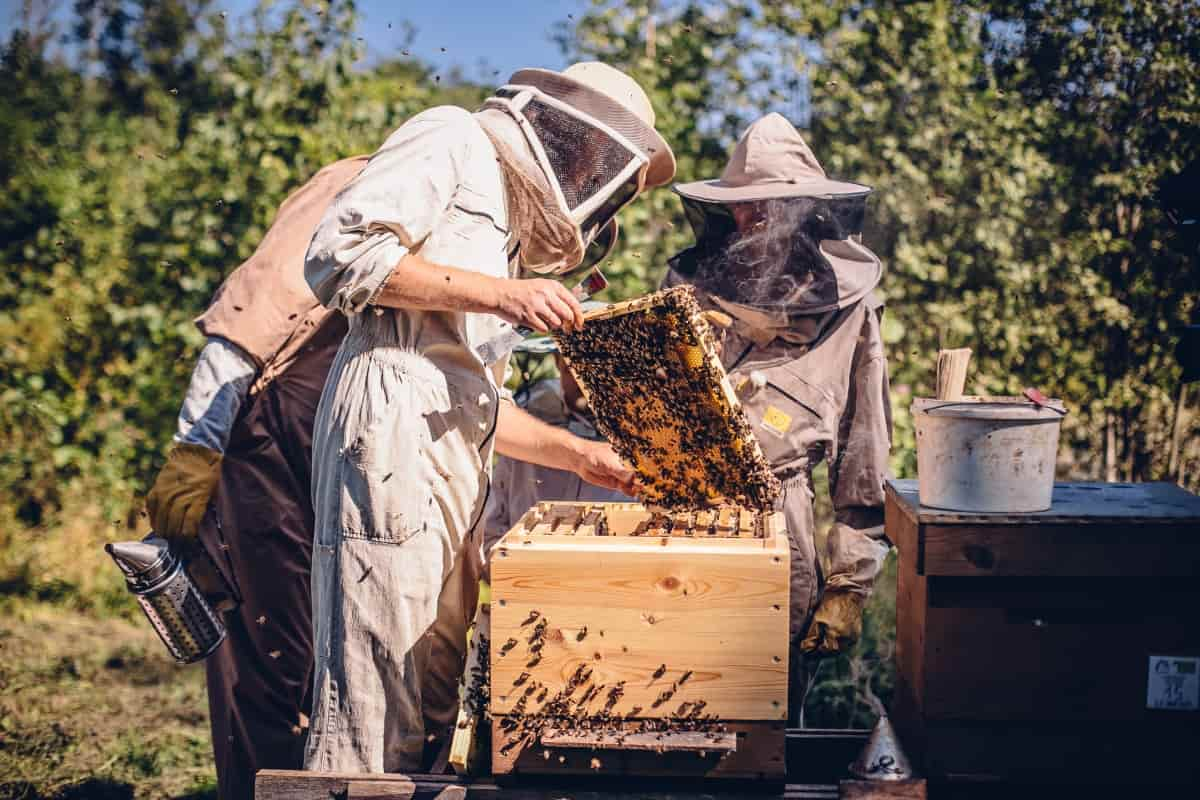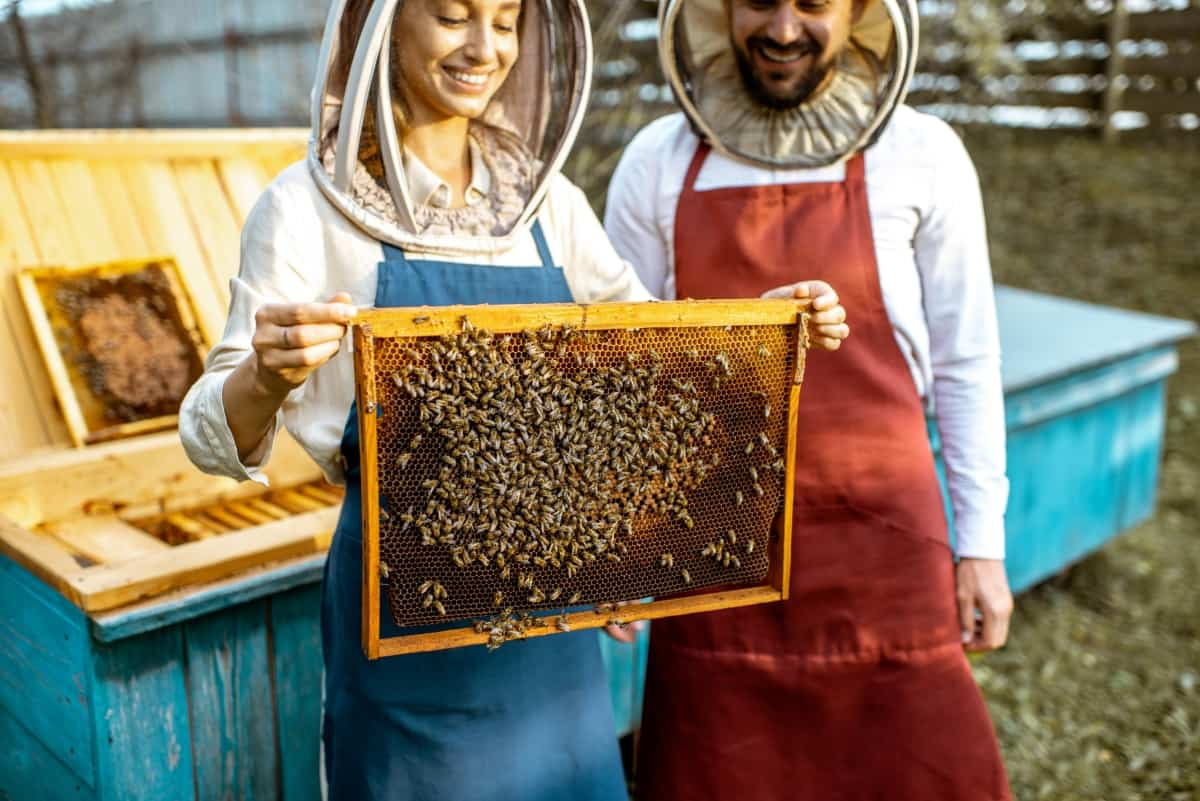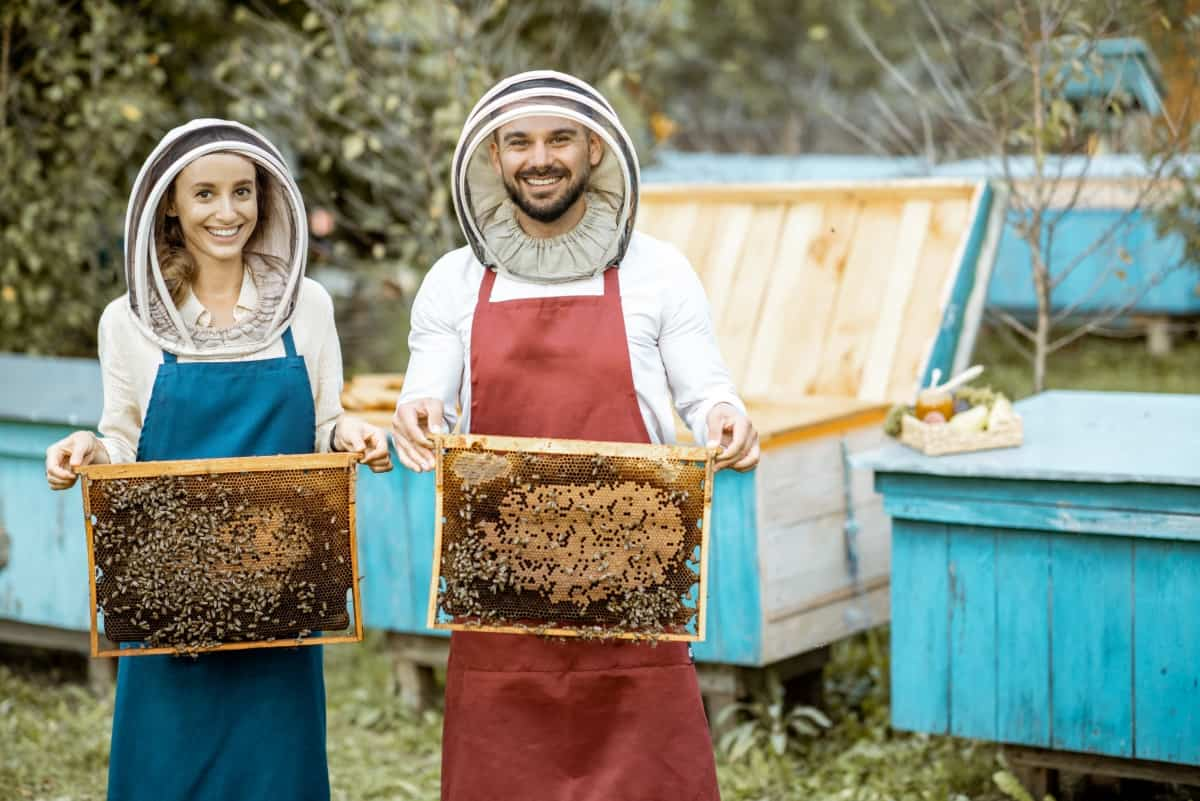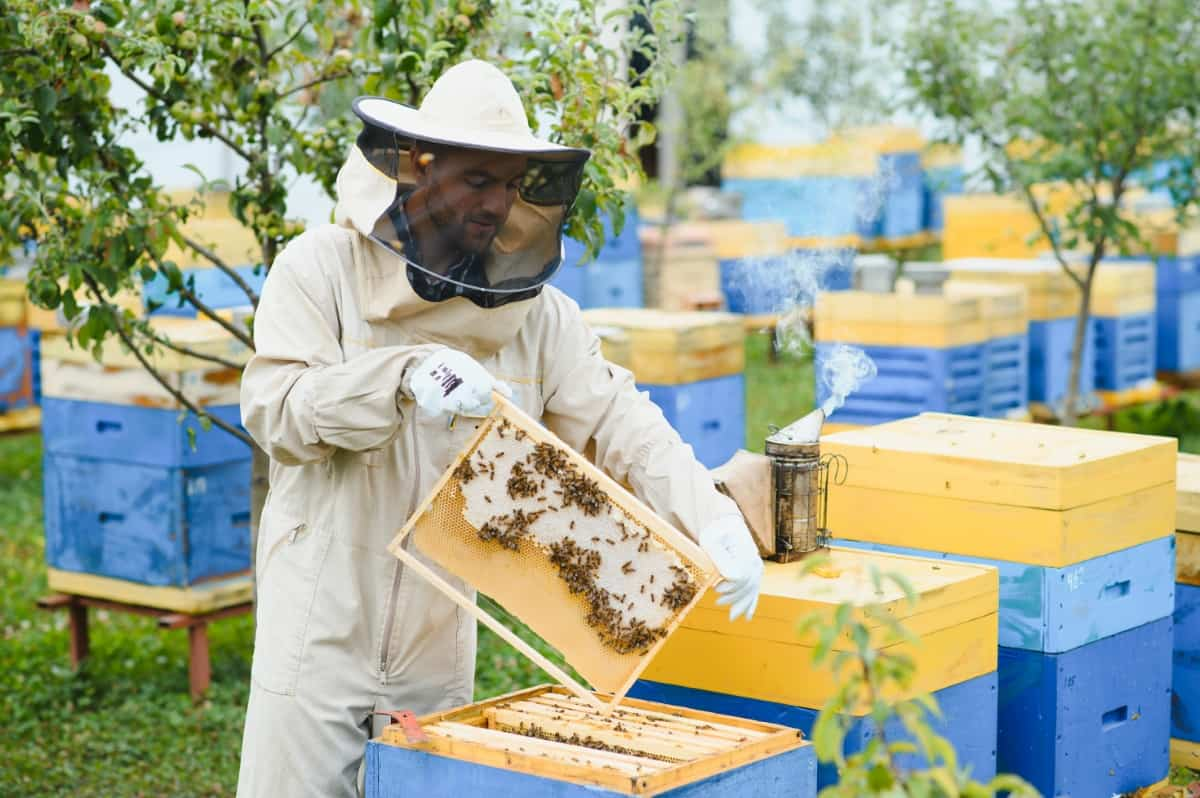Beekeeping in South Africa is a vital industry, contributing significantly to agriculture and the environment. The importance of beekeeping in South Africa lies in its role in pollination, supporting biodiversity, and providing livelihoods. With various beekeeping laws in South Africa, individuals looking to learn how to start bee farming in South Africa can find ample guidance.

The market for bees for sale in South Africa is growing, as is the need for a comprehensive bee farming business plan in South Africa, available in PDF formats for easy access. Urban beekeeping in South Africa is also gaining momentum, highlighting the industry’s adaptability and potential.
Beekeeping in South Africa
Understanding the History and Tradition of Beekeeping in South Africa
Beekeeping in South Africa has a rich history, rooted in both indigenous practices and colonial influences. Traditional methods were initially simple, focusing on harvesting honey from wild hives. With time, these evolved into more sophisticated techniques, incorporating knowledge from different cultures.
This history reflects a deep understanding of nature and a respect for the bees, forming the foundation of modern beekeeping practices in the country. The blend of traditional and modern methods has created a unique beekeeping culture in South Africa, one that respects the past while embracing new technologies.
Exploring the Various Types of Bees and Hives Used in South African Apiculture
In South Africa, beekeepers use several types of bees and hives, each suited to the country’s diverse climates and landscapes. The most common bees include the African honeybee, known for its hardiness and productivity. Beekeepers also experiment with different hive designs, from traditional log hives to modern Langstroth hives, which offer ease of management and better honey yield. These variations cater to different environments and beekeeping objectives, demonstrating the industry’s versatility and adaptability.
South African Climate and Its Impact on Beekeeping and Honey Production
The climate in South Africa greatly influences beekeeping and honey production. The country’s diverse weather patterns, from semi-arid regions to wetter coastal areas, affect the flowering cycles of plants, which in turn impacts honey production. Beekeepers must adapt their practices to these varying conditions, often migrating hives to areas with better forage. This mobility is essential for maximizing honey yield and maintaining healthy bee colonies, highlighting the dynamic nature of beekeeping in South Africa.
The Role of Beekeepers’ Associations in Regulating the South African Apiculture Industry
Beekeepers’ associations play a crucial role in regulating the South African apiculture industry. These organizations set standards for beekeeping practices, provide training and support, and advocate for policies that benefit beekeepers. They also facilitate communication and collaboration among beekeepers, helping to address challenges like disease management and market access. By fostering a sense of community and shared knowledge, these associations contribute significantly to the industry’s sustainability and growth.
In case you missed it: Small-scale Beekeeping Project Report: Economics of Honey Bee Farming Costs and Profits for 5 Hives

Market Analysis and Export Opportunities for South African Honey and Bee Products
The market for South African honey and bee products is promising, with both domestic and international demand growing. South African honey is known for its quality and unique flavors, making it attractive in global markets. Additionally, other bee products like propolis and beeswax have found niches in health and cosmetic industries. This growing market presents significant export opportunities for South African beekeepers, encouraging investment and expansion in the sector.
Sustainable Practices and Ecological Considerations in South African Beekeeping
Sustainable practices are crucial in South African beekeeping, given the importance of bees in ecosystem balance and agriculture. Beekeepers are increasingly adopting methods that protect bee health and the environment, such as limiting the use of chemicals and ensuring adequate forage. Ecological considerations also extend to managing the impact of beekeeping on other wildlife and natural habitats, ensuring a harmonious coexistence and preserving biodiversity.
In case you missed it: Apiculture/Beekeeping Success Story: Check How This Beekeeper Turned Into Millionaire

South African Honey Varieties
South Africa boasts a range of honey varieties, each with its unique taste and properties. These include Eucalyptus honey, known for its bold flavor; Wildflower honey, with its diverse and changing taste profile; Fynbos honey, from the native Fynbos vegetation, offering a distinct herbal flavor; Avocado honey, with a rich, buttery taste; and Macadamia honey, derived from macadamia nut orchards, known for its smooth, nutty flavor. These varieties reflect the rich floral diversity of South Africa, adding to the appeal of South African honey on the global stage.
Challenges and Opportunities for Small-Scale Beekeepers in Rural South Africa
Small-scale beekeepers in rural South Africa face unique challenges and opportunities. Limited access to markets and resources can hinder growth, while environmental factors like droughts and disease outbreaks pose significant risks. However, there are also opportunities, such as the growing demand for organic and locally produced honey. By leveraging community networks and support from governmental and non-governmental organizations, these beekeepers can overcome challenges and capitalize on the growing interest in sustainable and artisanal honey products.
Innovative Technologies and Equipment Used in Modern South African Beekeeping
Modern South African beekeeping has embraced innovative technologies and equipment to improve efficiency and productivity. This includes the use of beekeeping suits and smokers for safe hive management, honey extractors for efficient honey collection, and hive monitoring systems that use sensors to track hive health. These technologies not only make beekeeping more manageable but also help in maintaining the health of the bee colonies, ensuring sustainable production and the well-being of the bees.
In case you missed it: A Guide to Organic Beekeeping for Sustainable Apiculture

Conclusion
Beekeeping in South Africa stands as a dynamic and evolving industry, deeply rooted in tradition yet embracing modern advancements. With its diverse climate, rich variety of honey, and commitment to sustainable practices, the sector offers significant opportunities for both rural and urban beekeepers. The challenges faced, particularly by small-scale beekeepers, are balanced by the support of associations and the potential for market expansion. Overall, South African apiculture plays a crucial role in environmental sustainability, economic growth, and the preservation of biodiversity.
- Feed Your Flock for Less: Top 10 Tips to Save on Chicken Feed
- Ultimate Guide to Ossabaw Island Hog: Breeding, Raising, Diet, and Care
- Hatching Answers: The Top 10 Reasons Your Chickens Aren’t Laying Eggs
- Eggs and Economics: Breaking Down the Cost of Raising Backyard Chickens
- Defend Your Greens: Proven Methods to Keep Iguanas Out of Your Garden
- Ultimate Guide to Cinnamon Queen Chicken: A Comprehensive Guide for Beginners
- Ultimate Guide to California Tan Chicken: Breeding, Raising, Diet, Egg-Production and Care
- Ultimate Guide to Marsh Daisy Chicken: Breeding, Raising, Diet, and Care
- 10 Types of Chicken Farming Businesses You Can Start for Profits